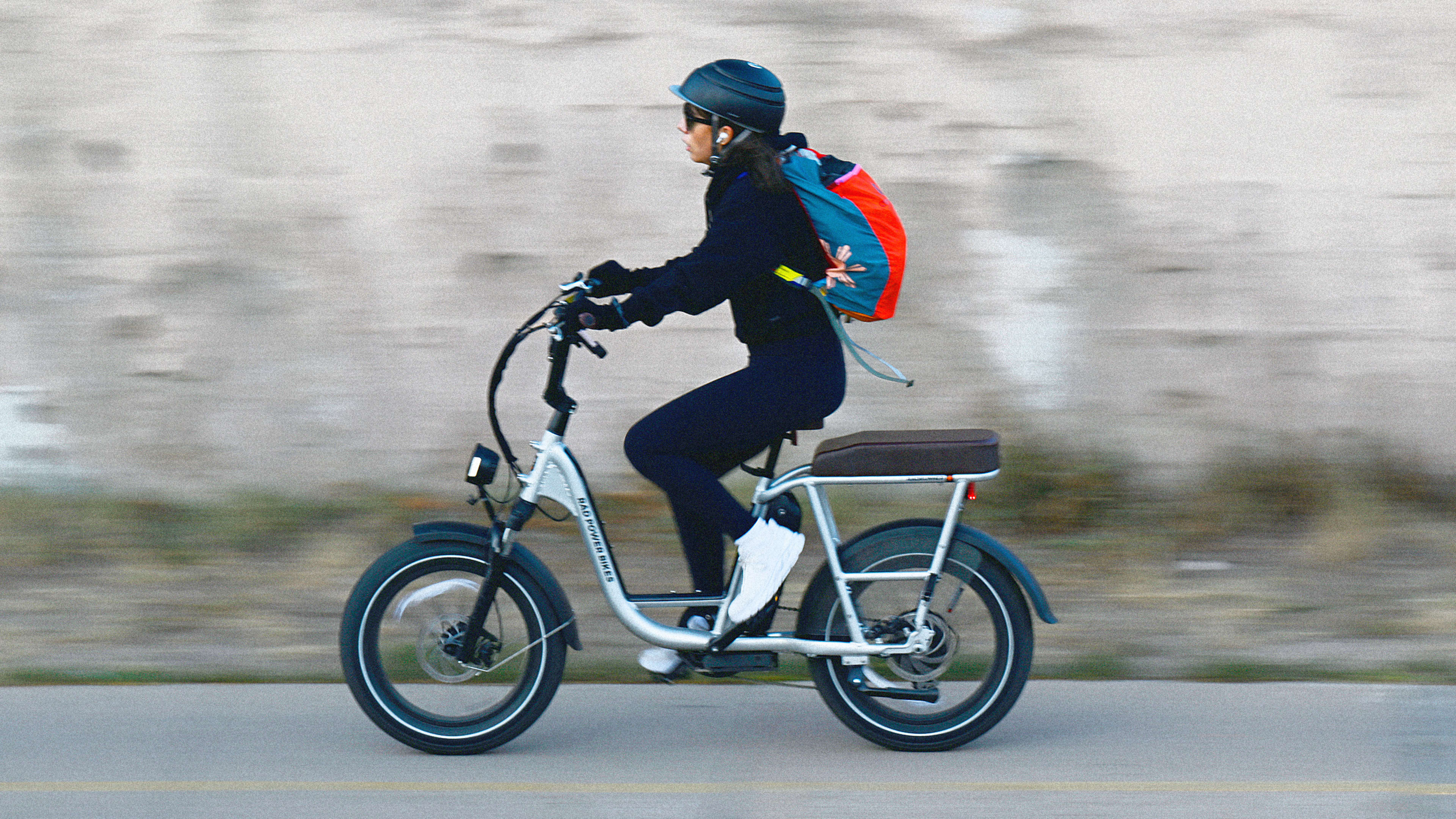After the city of Denver starting offering residents instant rebates on electric bikes last year—up to $1,700 off an e-cargo bike—more than 4,700 people used the vouchers to buy new bikes. A new report outlines the results: More than two-thirds of recipients report that they now drive less often. Nearly a third said they hadn’t biked at all in the past. The city estimates that the bikes are replacing 100,000 vehicle miles each week.
The city wanted to help tackle its pollution problem from cars: Transportation makes up 30% of Denver’s climate emissions, and the metro area also has some of the worst smog in the country, according to a ranking from the American Lung Association. “We have a climate and air-quality motivation for getting people out of their cars and into other forms of low-emitting or zero-emitting transportation,” says Grace Rink, the city’s chief climate officer. “We also know Denver is a pretty car-dependent city, but most of our trips are driving alone in a vehicle, and driving 5 miles or less. And those are trips that for the most part can be easily achieved on an e-bike.”
Denver was able to tap into a new source of funding—a 0.25% increase in local sales tax passed in 2020 that is earmarked for climate action. Last year, the city spent $4.7 million on the program. But even if other cities don’t have massive budgets, it’s still worth doing something, Rink says. “I definitely encourage other cities to use whatever money they can, and target the people who need this type of assistance the most.”
In New York City, for example, that might mean targeting delivery workers, says Noa Banayan, director of federal affairs at the nonprofit PeopleForBikes. (Many delivery riders do have e-bikes, but have cheap brands with uncertified batteries that have led to some recent battery fires.) Other cities might focus on low-income residents who are struggling to afford their cars.
In Denver’s case, the program is open to anyone, but was designed to offer larger incentives to low-income residents. The program is so popular that the first round of vouchers the city offered last spring disappeared within days, and the next round was gone in minutes. Each round, the city releases hundreds of rebates through its website, where residents fill out a short form to sign up. This year, as the program continues, the city has tweaked the system to give people with less digital access a better shot of participating.
“We changed the time of day when we released the vouchers,” Rink says. “It used to be at 8 o’clock in the morning. We changed that to 11 to match up when our public libraries are already open, so people who don’t have access to computers at home can go to the library and use them there. It might be a small change, but for some people, it can make a really big difference.”
The city also set aside some of the vouchers for nonprofits that work with lower-income residents, so if a staff member knows someone who needs help with transportation, the organization can apply for one of the vouchers on their behalf.
The rebates are available for use at several local bike stores, and can be used for an immediate discount. PeopleForBikes recommends that any similar program take the same approach, both because it makes the bikes accessible to people who couldn’t afford to pay up front, and because it’s just a better incentive. “It’s harder to intrinsically value the discount that you’re getting on a product if you’re doing it in a rebate form that takes some time to process, or through a tax credit that you get when you file your taxes,” Banayan says.
The city also piloted a new way to track the impact of the program. In addition to a traditional survey to understand how recipients were using the bikes, the team tested an app with some riders. “What makes the app unique is that it automatically detects when you start riding your bike, so it doesn’t miss any bike trips at all,” says Michael Schwartz, CEO of Ride Report, the company that developed the tool.
The app can distinguish between biking and riding in a car, based on the movement. Though the app ran only temporarily as a test (and in the summer months, when people were spending more time outside), the 70 riders who tested it logged more than 3,500 rides. Some 90% rode at least once a week; 65% rode at least once a day. The average trip was 3.3 miles, nearly double the average on local rideshare bikes during the same time period, which use the same software.
Dozens of other cities and states are considering or are already running similar programs now. Vermont offers as much as $3,000 for an e-bike when someone chooses to replace a car. The utility in Bend, Oregon, offers a $2,000 point-of-sale rebate. California’s air-quality management agency offers as much as $1,950 off for low-income buyers of e-cargo bikes. Multiple other new programs are in the proposal stage.
“It’s absolutely exploded this year in city and state legislative sessions,” Banayan says. “This is just the start, I think, of a sea change towards e-bikes that policymakers are going to leverage.”
Recognize your brand’s excellence by applying to this year’s Brands That Matter Awards before the early-rate deadline, May 3.
